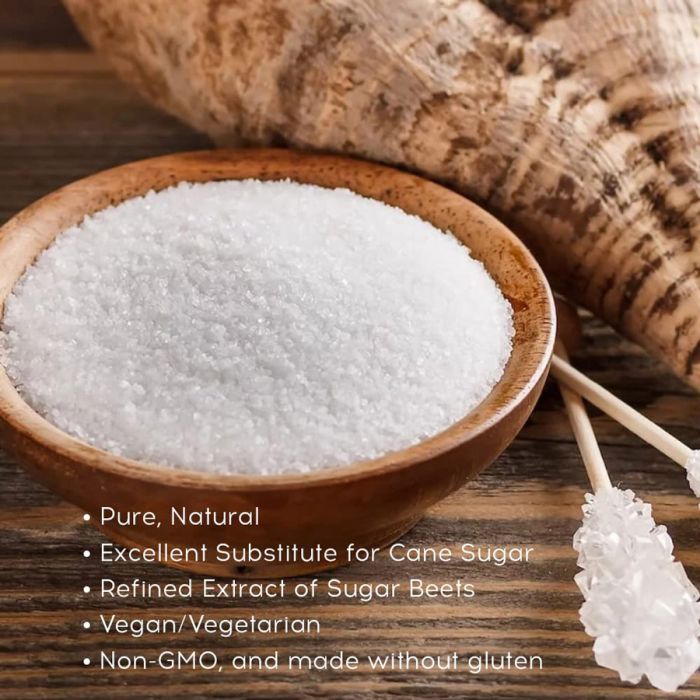Exploring the Distinctions being used and Advantages In Between Beet Sugar Vs Cane Sugar
In the cooking globe, the option between beet sugar and cane sugar is not just about sweet taste however involves a nuanced factor to consider of taste, application, and effect. While both sugars stem from various plants, each goes through one-of-a-kind production processes that discreetly affect their characteristics and viability for numerous meals. As cooks and consumers progressively focus on both the ecological and flavor accounts of their ingredients, comprehending these distinctions becomes vital. This exploration uses understanding right into exactly how each sugar kind can best boost culinary developments.
Origins and Production Processes of Beet and Cane Sugar

Walking cane sugar, on the various other hand, comes from the sugarcane plant, a tropical lawn native to Southeast Asia but now grown in tropical areas worldwide - beet sugar vs cane sugar. The manufacturing of cane sugar begins with the harvesting of cane stalks, which are crushed to release the juice.

Nutritional Content and Health Considerations

When comparing the dietary material of beet sugar and cane sugar, it comes to be noticeable that both kinds essentially offer the same calorie worths, with about 16 calories per teaspoon and no substantial nutrient diversity. Each is composed almost totally of sucrose, which is a simple carb that uses quick power however lacks vitamins, minerals, or fiber. This resemblance encompasses their effect on health, especially concerning blood sugar degrees. Both sugars, when consumed over, can add to raised blood sugar degrees, a danger factor for diabetes mellitus and other metabolic problems. Additionally, extreme consumption can cause weight gain and dental issues, as both sugars are equally cariogenic, advertising dental cavity. From a health point of view, moderating intake of any kind of kind of sugar, whether from beet or cane, is suggested to avoid these prospective negative impacts on health. Thus, neither holds an unique benefit over the other in regards to wellness benefits.
Flavor Accounts and Culinary Applications
Despite their comparable chemical frameworks, beet sugar and cane sugar differ subtly in taste, which can affect their usage in numerous cooking contexts. Walking cane sugar frequently brings a tip of molasses, also in its refined type, lending a warm, caramel-like undertone that enhances baked goods, coffee, and chocolate-based dishes. This mild molasses taste is particularly valued in the baking industry for adding deepness to desserts and breads. On the other hand, beet sugar is defined by its highly refined, neutral preference, making it a versatile sweetener that does not modify the taste profiles of dishes. This nonpartisanship is specifically beneficial in fragile dishes, such as light pastries, lotions, and some sauces, where the inherent tastes of various other components are intended to stand out. Subsequently, cooks and food producers might pick one sort of sugar over the other based on the desired taste result of their culinary productions.
Ecological Impact and Sustainability
While both beet and cane sugars are derived from plants, their environmental impacts differ considerably due to the unique methods of growing and processing required for each. Sugar beet cultivation typically includes substantial automation, which can boost fossil fuel consumption and carbon discharges.
Furthermore, the processing of sugarcane typically produces a significant amount of waste, consisting of bagasse, which, although useful as biofuel, often Going Here adds to air pollution if burned inefficiently. Sugar beet processing uses more of the raw materials, leading to much less waste. Both markets face obstacles in reducing their ecological impacts, but ongoing innovations in farming methods and waste management are intending to improve sustainability.
Economic Variables Influencing the Sugar Sector
The economic characteristics of the sugar market are dramatically influenced by international market demands and trade plans. Factors such as tolls, aids, and international profession contracts play crucial functions in forming the competitive landscape. In areas where sugarcane or sugar beet production is subsidized, producers might have an economic benefit that enables them to provide reduced rates on the global market. This can produce differences in profitability and market access for producers in countries without such aids.
Additionally, changes in worldwide demand for sugar, influenced by dietary trends and industrial use in foodstuff, directly effect costs and production levels. beet sugar vs cane sugar. Weather conditions likewise play an essential function, as they can considerably impact crop returns and, as a result, the supply chain. This variability presents a degree of economic uncertainty that can result in investment volatility in sugar manufacturing fields, affecting choices from planting to market approach
Verdict
To conclude, both beet and cane sugar have our website special high qualities that fit different cooking requirements. While cane sugar read the full info here imparts an abundant flavor ideal for enhancing baked items, beet sugar's neutrality is perfect for lighter recipes. Nutritional similarities notwithstanding, their distinctive production processes and environmental impacts include complexity to the choice in between them. Therefore, understanding these distinctions helps cooks and consumers make educated decisions that line up with their health and wellness, cooking, and honest choices.
Comments on “The refining process of beet sugar vs cane sugar differs, affecting the final product’s characteristics.”